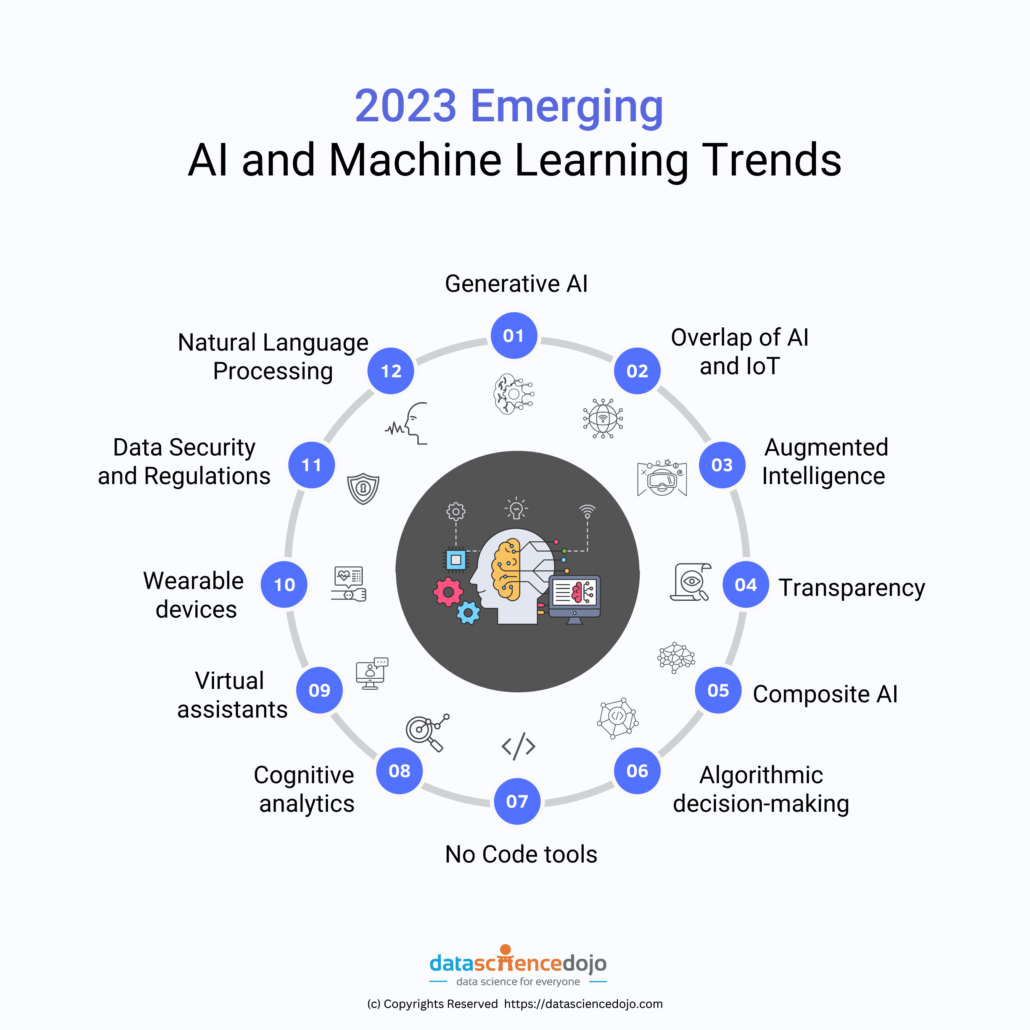In recent years, the field of artificial intelligence (AI) has witnessed remarkable advancements, reshaping the landscape of software development. The latest trends in AI software development encompass a variety of innovative technologies, including machine learning, natural language processing, and automation. As businesses increasingly adopt AI solutions, understanding these trends becomes essential for developers and organizations aiming to stay competitive in a rapidly evolving market.
This article will delve into the most significant trends currently influencing AI software development. Readers will discover how machine learning algorithms are becoming more sophisticated, enabling systems to learn from data with unprecedented accuracy. Additionally, we will explore the rise of natural language processing, which is transforming the way humans interact with machines, making communication more intuitive and efficient.
Furthermore, we will examine the growing importance of automation in AI development, highlighting how it streamlines processes and enhances productivity. By the end of this article, you will have a comprehensive understanding of the latest trends in AI software development and their implications for the future. So, whether you are a seasoned developer or just starting your journey in AI, keep reading to uncover insights that could shape your approach to software development in the age of artificial intelligence.
The Rise of No-Code and Low-Code AI Development Platforms
No-code and low-code platforms are revolutionizing the way AI software is developed. These platforms allow users with little to no programming experience to create AI applications through visual interfaces and drag-and-drop functionalities. This democratization of AI development is enabling businesses to innovate faster and reduce the dependency on specialized technical teams.
As organizations increasingly seek to integrate AI into their operations, the demand for no-code and low-code solutions is surging. These platforms not only accelerate the development process but also empower non-technical users to contribute to AI projects, fostering a culture of innovation across various departments.
AI-Driven Automation in Software Development
AI-driven automation is becoming a cornerstone of modern software development practices. By leveraging machine learning algorithms, developers can automate repetitive tasks such as code reviews, testing, and deployment. This not only enhances productivity but also minimizes human error, leading to more reliable software products.
Furthermore, AI tools can analyze vast amounts of data to provide insights into code quality and performance, enabling developers to make informed decisions. As a result, teams can focus on more strategic tasks, ultimately driving faster delivery of high-quality software solutions.
Enhanced Natural Language Processing (NLP) Capabilities
Natural Language Processing (NLP) is witnessing significant advancements, enabling more sophisticated interactions between humans and machines. The latest trends in AI software development are focusing on improving NLP algorithms to understand context, sentiment, and intent more accurately. This has profound implications for applications such as chatbots, virtual assistants, and customer support systems.
With enhanced NLP capabilities, businesses can provide more personalized and efficient customer experiences. As AI continues to evolve, the integration of advanced NLP into software solutions will become increasingly essential for organizations looking to stay competitive in the digital landscape.
Ethical AI and Responsible Development Practices
As AI technology becomes more pervasive, the importance of ethical AI and responsible development practices is gaining traction. Developers are now prioritizing transparency, fairness, and accountability in AI systems to mitigate biases and ensure equitable outcomes. This trend is driven by growing public awareness and regulatory scrutiny surrounding AI applications.
Organizations are adopting frameworks and guidelines to assess the ethical implications of their AI projects. By embedding ethical considerations into the development process, companies can build trust with users and stakeholders, ultimately leading to more sustainable AI solutions.
Integration of AI with Edge Computing
The integration of AI with edge computing is transforming how data is processed and analyzed. By bringing computation closer to the data source, edge AI enables real-time decision-making and reduces latency. This trend is particularly relevant for applications in IoT, autonomous vehicles, and smart cities, where timely data processing is critical.
As more devices become interconnected, the demand for edge AI solutions is expected to grow. This shift not only enhances performance but also addresses concerns related to data privacy and bandwidth, making it a key focus area in AI software development.
The Role of AI in Cybersecurity
AI is playing an increasingly vital role in enhancing cybersecurity measures. With the rise of sophisticated cyber threats, organizations are leveraging AI algorithms to detect anomalies, predict potential breaches, and respond to incidents in real-time. This proactive approach to cybersecurity is essential for safeguarding sensitive data and maintaining trust with customers.
Moreover, AI-driven security solutions can analyze patterns in user behavior to identify potential vulnerabilities, allowing organizations to strengthen their defenses. As cyber threats continue to evolve, the integration of AI into cybersecurity strategies will be crucial for protecting digital assets.
| Trend | Description |
|---|---|
| Machine Learning Operations (MLOps) | MLOps focuses on streamlining the deployment, monitoring, and management of machine learning models in production, ensuring better collaboration between data scientists and operations teams. |
| Explainable AI (XAI) | As AI systems become more complex, the need for transparency increases. XAI aims to make AI decisions understandable to users, enhancing trust and accountability. |
| AI Ethics and Governance | With the rise of AI, ethical considerations are paramount. Organizations are developing frameworks to ensure responsible AI usage, addressing bias, privacy, and fairness. |
| Federated Learning | This approach allows models to be trained across decentralized devices while keeping data localized, enhancing privacy and security without compromising performance. |
| Natural Language Processing (NLP) Advancements | Recent breakthroughs in NLP, including transformer models, are enabling more sophisticated language understanding and generation, impacting chatbots, translation, and content creation. |
| AI-Powered Automation | AI is increasingly being used to automate repetitive tasks across various industries, improving efficiency and allowing human workers to focus on more complex problems. |
| Integration of AI with IoT | The convergence of AI and the Internet of Things (IoT) is leading to smarter devices and systems that can analyze data in real-time, enhancing decision-making processes. |
| Edge AI | Processing AI algorithms on local devices (edge computing) reduces latency and bandwidth usage, making real-time data processing feasible for applications like autonomous vehicles and smart cameras. |



